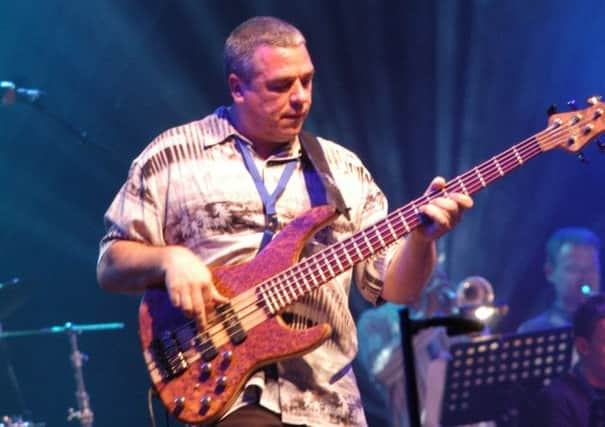Concert series tribute to jazz wild man Pastorius


For Laurence Cottle, himself a virtuosic bass guitarist, Pastorius’s landmark and eponymous debut album of 1976 “completely changed the way everybody thought about the role of the bass guitar. Every track on that album has a ground-breaking technique.”
For Scots saxophonist Tommy Smith, director of the Scottish National Jazz Orchestra, whom Cottle joins in celebration of Pastorius’s music next weekend, playing alongside the Florida-born bass wizard at the Blue Note and other New York clubs remains “an indelible experience”.
Advertisement
Hide AdCottle says, “Hearing that record was inspirational, a turning point and, like every other bass guitarist, I started transcribing all the things he was playing on it.” The London-based musician has carved out a distinguished career of his own, with a multifarious CV including session work with artists as diverse as Black Sabbath and Brian Eno, and jazz collaborators including Tim Garland, Jason Rebello and the NDR Big Band.
As well as being a frontline bassist, he shared one other perhaps less well-known skill with the late Pastorius – they both practised juggling. “I first met Jaco in Boston when I was studying there,” he recalls, “and he was brilliant. We had a little play then got some juggling done on Boston Common, then he did a gig and we went out and had a few drinks and it all got terribly weird. It was the start of his problems.”
“His problems” were rooted in the increasingly unpredictable bipolar disorder which first manifested while Pastorius was playing with jazz-rock fusioneers Weather Report and was exacerbated by his drug and alcohol use during the later stages of a brilliant career cut short by his death, at the age of 35, in 1987. Cottle wonders whether the sheer pressure of continually trying to top the unprecedented standard that he had established also played a part in his downward slide: “Perhaps he set the bar so high that even he couldn’t keep up with it.”
It is Pastorius’s inspirational legacy that is being remembered this month, however. Along with Cottle, the SNJO, currently riding high on the acclaim that has greeted their last two collaborative albums – American Adventure, with various US guests, and Bobby Wellins’s Culloden Moor Suite – will be joined by Grammy-award winning percussionist Marcio Doctor and acclaimed flautist and band-leader Gareth Lockrane.
The three concerts, in Edinburgh, Glasgow and Dundee, will feature Cottle’s arrangements of material from Pastorius’s own projects, as well as from his Weather Report days, with Cottle transcribing faithfully some of Pastorius’s own big band arrangements, such as Three Views of a Secret and Liberty City, as well creating fresh arrangements of other numbers.
The SNJO collaboration isn’t the only highly cosmopolitan jazz touring in Scotland this month. Originally from South Africa, lately via Dorset’s “Jurassic Coast”, comes the ringing lyricism of pianist-composer Philip Clouts, kicking off tonight in the perhaps unlikely sounding venue of Auchenblae Village Hall, Aberdeenshire, before playing Edinburgh’s Jazz Bar and four other venues over the next five days.
Advertisement
Hide AdHere in the sterling company of saxophonist Tom Ward (Madwort Saxophone Quartet), bassist Tim Fairhall (Yasmin Levy) and Yamaha Scholarship-winning drummer Dave Ingamells, Clouts’s music can range from beaty grooves, informed by sounds from Africa, Latin America and elsewhere, to warm, highly melodic ballads, as demonstrated on the quartet’s much praised current album, The Hour of Pearl.
The album takes its title from author John Steinbeck’s evocation of “the interval between night and day when time stops and examines itself”. Once Clouts and company take the stage, however, time is unlikely to hang heavily.
Advertisement
Hide Ad•The SNJO and Laurence Cottle: Queen’s Hall, Edinburgh, 7 November; Royal Conservatoire, Glasgow, 8 November; Gardyne Theatre, Dundee, 9 November, www.snjo.co.uk The Philip Clouts Quartet: Auchenblae Village Hall tonight; Jazz Bar, Edinburgh, tomorrow; Inn at Lathones, Fife, 3 November; Lemon Tree, Aberdeen, 4 November; Woodend Tennis Club, Glasgow, 5 November; Carnegie Hall, Dunfermline, 6 November, www.philipcloutsquartet.co.uk